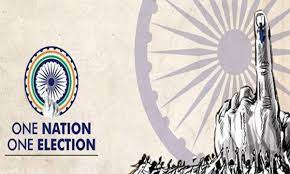Tiers apart : On the ‘one nation, one election’ trial balloon
‘One nation, one election’ militates against federalism and multi-tiered governance
In a multi-tiered governance system such as the one in India, a Union of States, electoral democracy works by allowing people to choose their representatives for each tier based on their perception of who is best suited to represent them for each specific tier. There is a reason why there is a demarcation of power between the Union, States and local body institutions and why there is a voter mandate every five years to elect representatives for Parliament, Assemblies and local bodies. The demarcation allows for specific roles for each representative across these tiers and suggests varied voter choices that could be based on party affiliation, candidate strength, ideological positions or simple socio-economic reasons specific to each constituency. That some States such as Andhra Pradesh and Sikkim hold simultaneous Assembly and parliamentary polls is a coincidence as their electoral cycle has coalesced with that of parliamentary polls. The BJP-led Union government’s trial balloon, exploring the feasibility of simultaneous elections for all levels through a committee led by former President Ramnath Kovind, militates against the foundational idea of multi-tiered governance and is anti-federalist. Dangerously, one of the committee’s terms of reference — to “examine and recommend, if the amendments to the Constitution [for the purpose of holding simultaneous elections] would require ratification by the States” — is a proposition that is anti-constitutional and will not stand legal scrutiny. It also advances a motive that would curtail many Assemblies much before their scheduled tenures — an untenable prospect.
Ostensibly, the proposal speaks of the need for simultaneous elections as a cost-cutting exercise allowing voting in parliamentary, Assembly, municipal and panchayat elections in one go. It also stems from the flawed notion that governments are forever in campaign mode because of frequent Assembly elections. First, there is no study to prove that there will be significant cost-saving with simultaneous elections and in any case, the costs incurred in the conduct of elections are not essentially wasteful as there is a multiplier effect to campaign spending and economic activity around polls. Elections for different levels also allow voters to hold their representatives to account and for their specific grievances to be noted. Second, the conduct of various elections at different points of time is to only elect representatives for these tiers and is not a referendum on just one tier or even an individual leader at every point of time, as the BJP has sought to make it. Those in civil and political society who are committed to India’s federal structure should argue for separation of the Lok Sabha election from polls to Assemblies as the campaign issues and democratic choices vary. In any case, unless the term of each Lok Sabha and Assembly is fixed, and premature dissolution for whatever reason is barred, the idea is unworkable.
